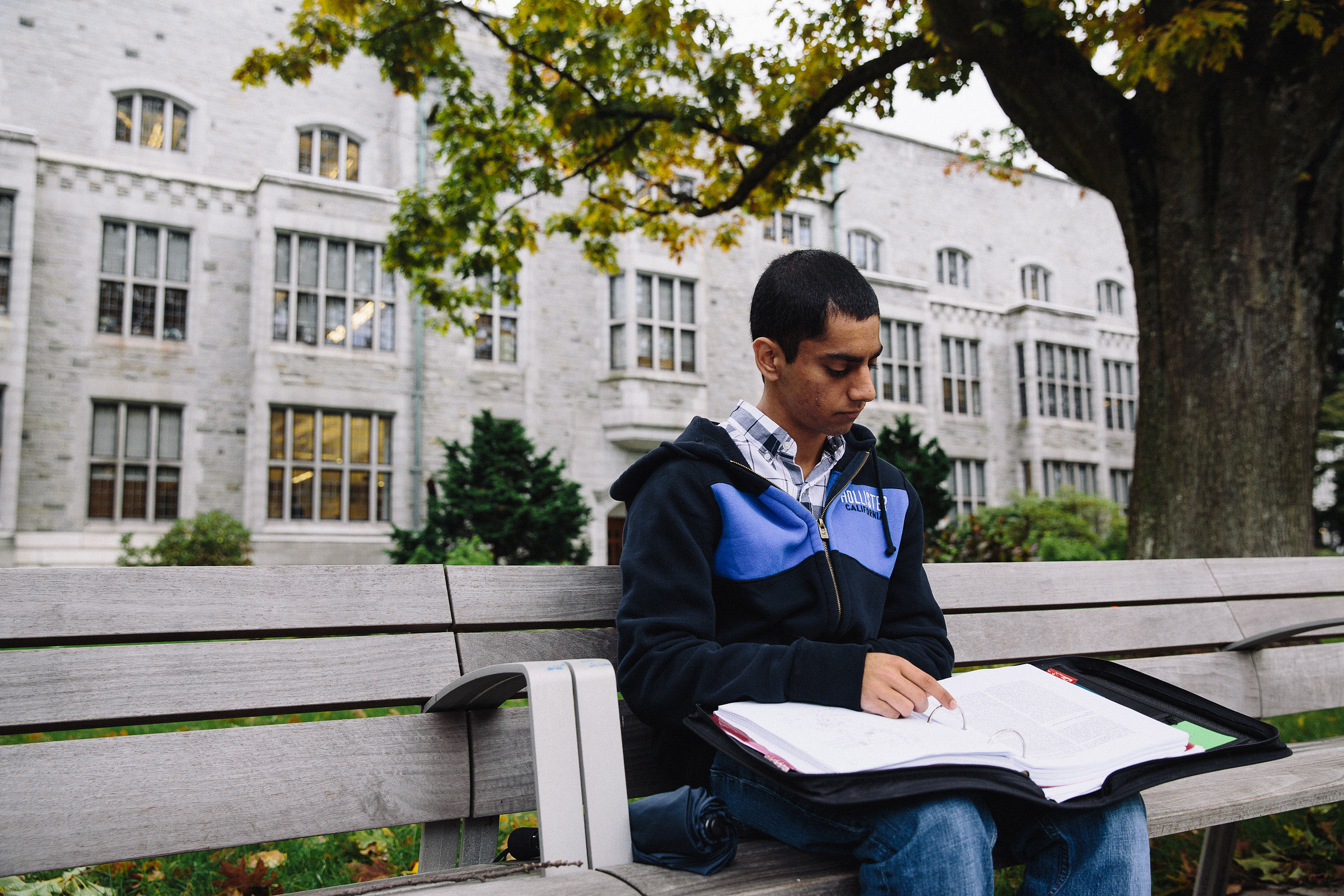The start of a new school year can feel like you’ve forgotten how to learn.
The residual grog of summer mixed with the anticipation of university academics can seem like an uneasy cocktail to begin the year with. But I assure you, the back-to-school jitters can still be a thing—no matter your year.
Luckily, I’ve picked up some tips and tricks over the years to curb those academic anxieties, and the sooner you pick up these habits too, the better—much better. Here are some ways to help you start your school year on the right foot:
Develop a routine
Motivation might be a great way to get yourself started, but most of us know it doesn't always last. Sticking to a routine means you’ll develop productive habits that last over the long term.
Manage your time by developing a daily or weekly routine with set times for your studies, work, volunteering, as well as time to just unwind. Use an app or planner to keep track of your priorities—figuring out which tasks take precedence is the first step in getting that productivity ball rolling.
Revamp how you take notes
Early on, I fell into the habit of writing down every word the professor was saying. But only when exam season came around did I realize how unhelpful my rambling, disorganized (and illegible) notes were. This is what I’ve learned:
-
Paraphrase—note key points and concepts
-
Record lectures to review, if your professor allows recordings
-
Use diagrams or mind maps
When reviewing your notes, don’t just read them. Try summarizing, linking concepts, and explaining the material to your peers and quizzing each other. There are many different note-taking methods, so figure out what works for you!


Engage in class and think critically
I'm definitely guilty of scrolling through Facebook during a dense lecture—but it's an easier habit than you think to break. Take little steps to become an active learner: ask questions, discuss with your classmates, and challenge your material. Engage in your studies as if you were learning for the purpose of teaching someone else.
Go to those dreaded 8:00 am classes and participate in tutorials—because frankly, unlike high school, you’re paying for this!
Give yourself short-term goals
When I’m feeling overwhelmed, I find breaking down what I need to do makes tackling the work less intimidating.
Approach bigger assignments that have farther deadlines with a checklist and tangible tasks. For example, if you’re tackling a 10-page research paper, set a goal of finishing the thesis or outline by the end of the day, or hit a certain word count by the end of the week.
Just be realistic about how much you want to accomplish and keep it to 4-5 checkpoints a day—you’re only human.
Take what you're learning beyond the classroom
I realized this fairly late in my academic career: learn for the sake of learning, not for the letter grade.
A lot of the time, the stress of wanting to ace that exam is counterproductive. Obviously, strive to do well, but instead of getting caught up in test results, find value in what you're learning both personally and in a broader or long-term context. Your grades do not indefinitely define who you are or will become.
This shift in thinking made my courses more rewarding, and ironically, improved my grades.
Curb your procrastination
Ah, the common plight of every student: procrastination. Because why do it now when you can do it tomorrow?
Limiting your distractions while you’re studying can make a huge impact on how well and how long you can focus. Put your phone on airplane mode, use app blockers like Forest, or install web extensions like StayFocusd that limit how much time you spend on time-wasting websites.
Cold Turkey Writer is a free text-editor app that blocks out all distractions from your computer—and I mean all. This program will not let you exit until you’ve hit your custom word count or time limit.
Study actively—literally
Incorporate ways to stay active into your study life.
Not only is it a great way to de-stress and stay healthy, but researchers have shown that regular exercise improves your verbal memory and thinking skills. If you can’t find time to hit the gym, here are some tips to help you move while you study.
Go to office hours and use UBC resources
Take advantage of office hours to go over course assignments or material—and do this early on in the term. Professors and TAs are approachable (truly) and are there to help you succeed! Use the many resources UBC has to offer, such as the following:
- The Chapman Learning Commons on the 3rd floor of the Irving K. Barber Learning Centre provides online resources, free equipment lending, tutoring, and writing workshops.
- Your academic advisor can answer your degree, program, and course-related questions.
- Peer Programs offer student support by connecting you with Academic Coaches, Wellness Peers, and more.
- AskAway is an online resource that lets you ask librarians questions in real time. You can also speak to a subject matter librarian if you prefer in-person help with an essay or research paper.
- These additional resources on campus can help you thrive at UBC—from academics to wellness and beyond.
Take care of yourself
Don’t burn yourself out! Schedule in 15-minute breaks during those long-haul study sessions. Relax with your friends and reward yourself for your hard work. Veg out with a YouTube video or go for a walk—do at least one thing a day that brings you joy.
Remember to build in time for yourself to disconnect from your academics and to take care of your mental health—and never underestimate the effect of a good night’s rest!
Figure out what works for you
Ultimately, there is no secret shortcut for how to ace that assignment or exam—it all comes down to finding out what works for you.



